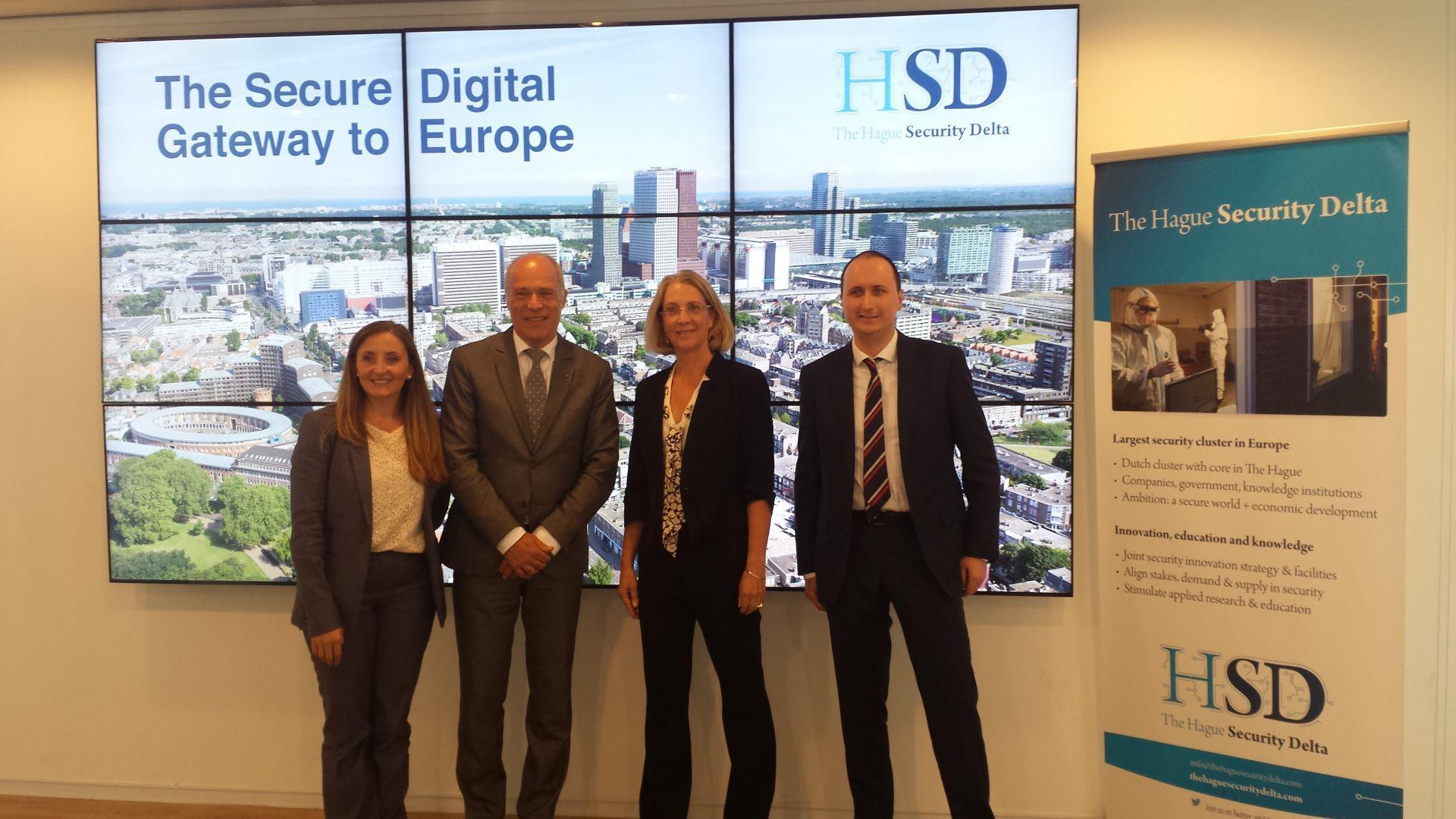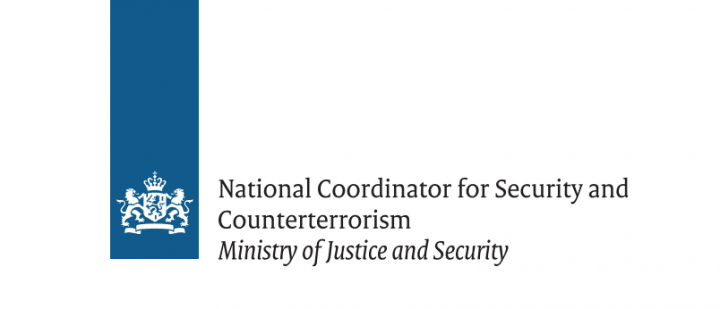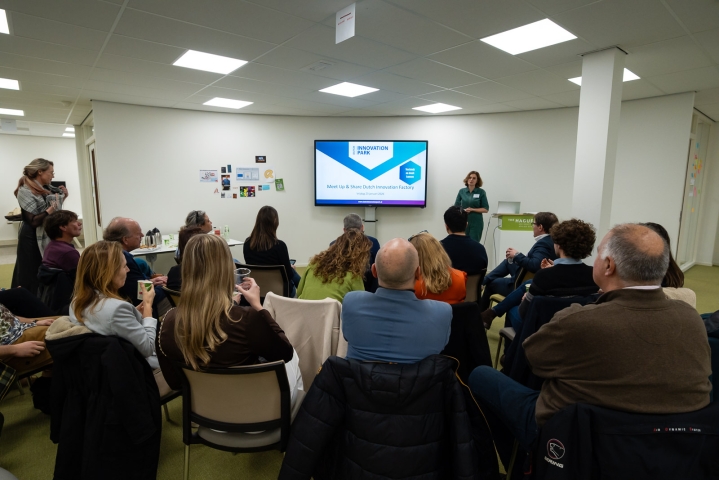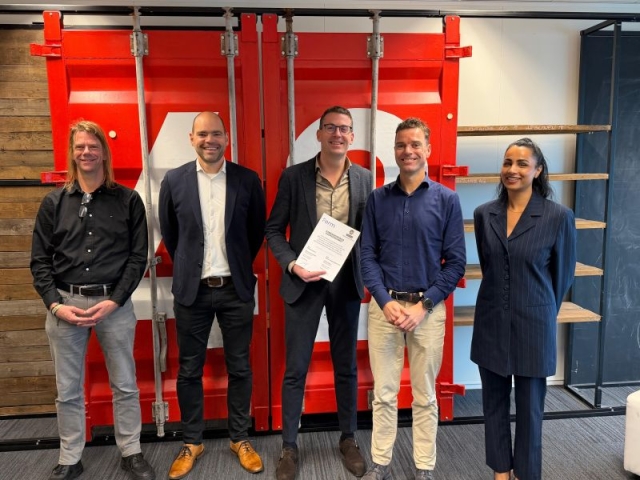Report ‘The Netherlands Cyber Readiness at a Glance’ presented by Melissa Hathaway
On 15 May, Melissa Hathaway presented the report ‘The Netherlands Cyber Readiness at a Glance’ during the International One Conference 2017. After that, she and co-author Fransesca Spidalieri visited the HSD Campus to discuss HSD its for cyber security in the Netherlands together with HSD director Richard Franken and Innovation Liaison Bert Feskens, and to hand over the report. The author, Melissa Hathaway, is a leading expert in cyber space policy and cyber security. She served in two US presidential administrations, being head of the Cyberspace Pollicy Review for the Obama administration and leading The Comprehensive National Cybersecurity initiative for during the George W. Bush administration.
The report was performed by the Potomac Institute for Policy Studies (PIPS) and commissioned by the Dutch Government. It is the latest study in a series of country reports assessing national-level preparedness for cyber risks based on the Cyber Readiness Index (CRI) 2.0 methodology. This report provides the most in-depth analysis to date of the Netherlands' current cyber security posture and its efforts to strengthen the country's security and resilience in the face of emerging ICT threats. The report was made possible through funding by the Dutch Government's National Coordinator for Security and Counterterrorism and includes extensive interviews with Dutch Government officials and other European experts.
The global cyber attacks of last week, which hit more or less 150 countries last weekend, indicates once again that cyber security must be high on every government's priority list.
The authors conclude that the Netherlands has the right ambitions "but the vision and ambitious plans are not supported by enough money, material and people. The Netherlands is on a path to becoming cyber ready and has aligned its national security priorities with its economic vision."
As Melissa Hathaway, CRI principal investigator, explains: "the Netherlands, like many other developed countries, has started to develop multiple plans, policies, and strategies to combat cyber threats, protect the value of their digital investments, preserve their national and economic security, and reach the ambitious goals set forth in their strategies. The publication of its two comprehensive national cyber security strategies, the development of its strong national cyber security architecture with military and intelligence services contributing to a whole-of-nation cyber defense, and its proactive efforts to shape cyber policy discussions in multiple international fora demonstrate that the Netherlands is committed to advancing its cyber readiness. Nonetheless, as cyber threats to the Netherlands continue to grow in scope, volume, and sophistication, it will be essential to accelerate existing civil-military cooperation, increase dedicated funding, clarify the division of responsibilities among actors, and measure the true costs of cyber insecurity to the country."
Patricia Zorko, the Deputy National Coordinator for Security and Counterterrorism and Director of the Cyber Security Department, stated: "the CRI analysis states clearly that the Netherlands is on its way to becoming cyber ready and underlines how important it is to continue our efforts to strengthen and mainstream cyber security in the Netherlands. As a major exporter of ICT goods and telecommunication services, the Netherlands is a frontrunner when it comes to cyber security. This gives us great opportunities, but only if the Internet and its underlying infrastructures are secure, resilient, and available."
The Potomac Institute for Policy Studies
The Potomac Institute for Policy Studies is an independent, 501(c)(3), not-for-profit public policy research institute. The Institute identifies and shepherds discussion on key science and technology issues facing society. From these discussions, PIPS develops meaningful policy options and ensures their implementation at the intersection of business and government.




















